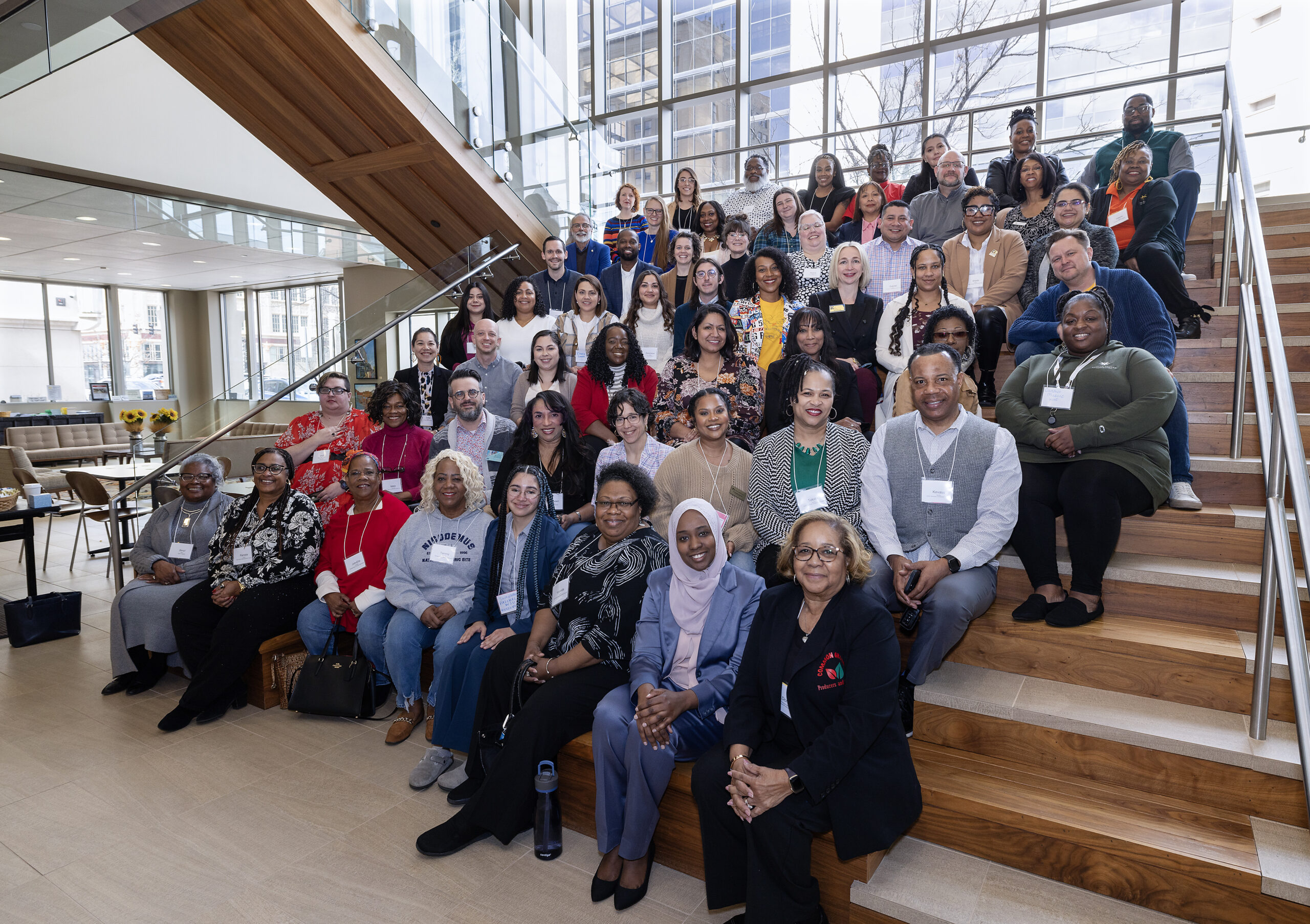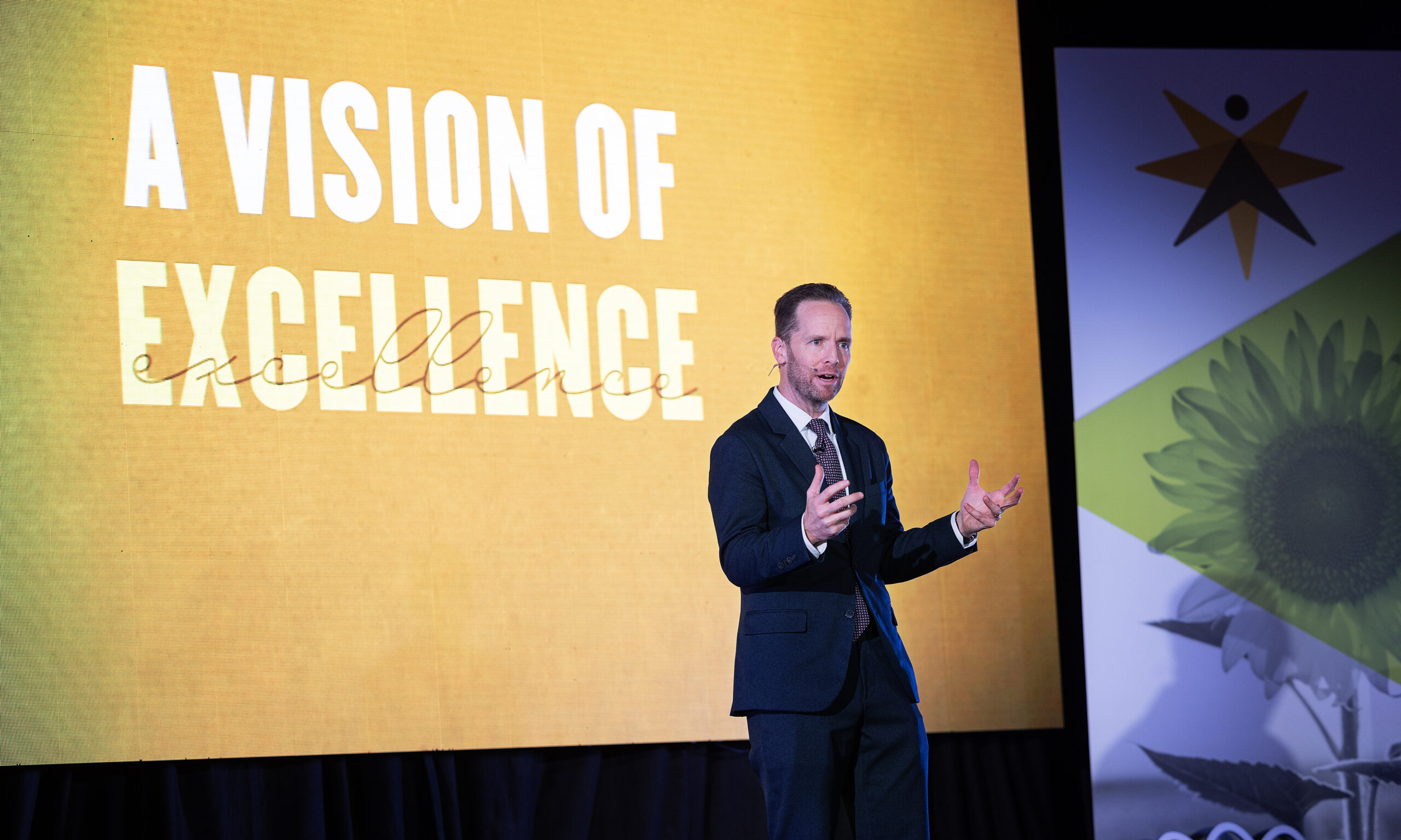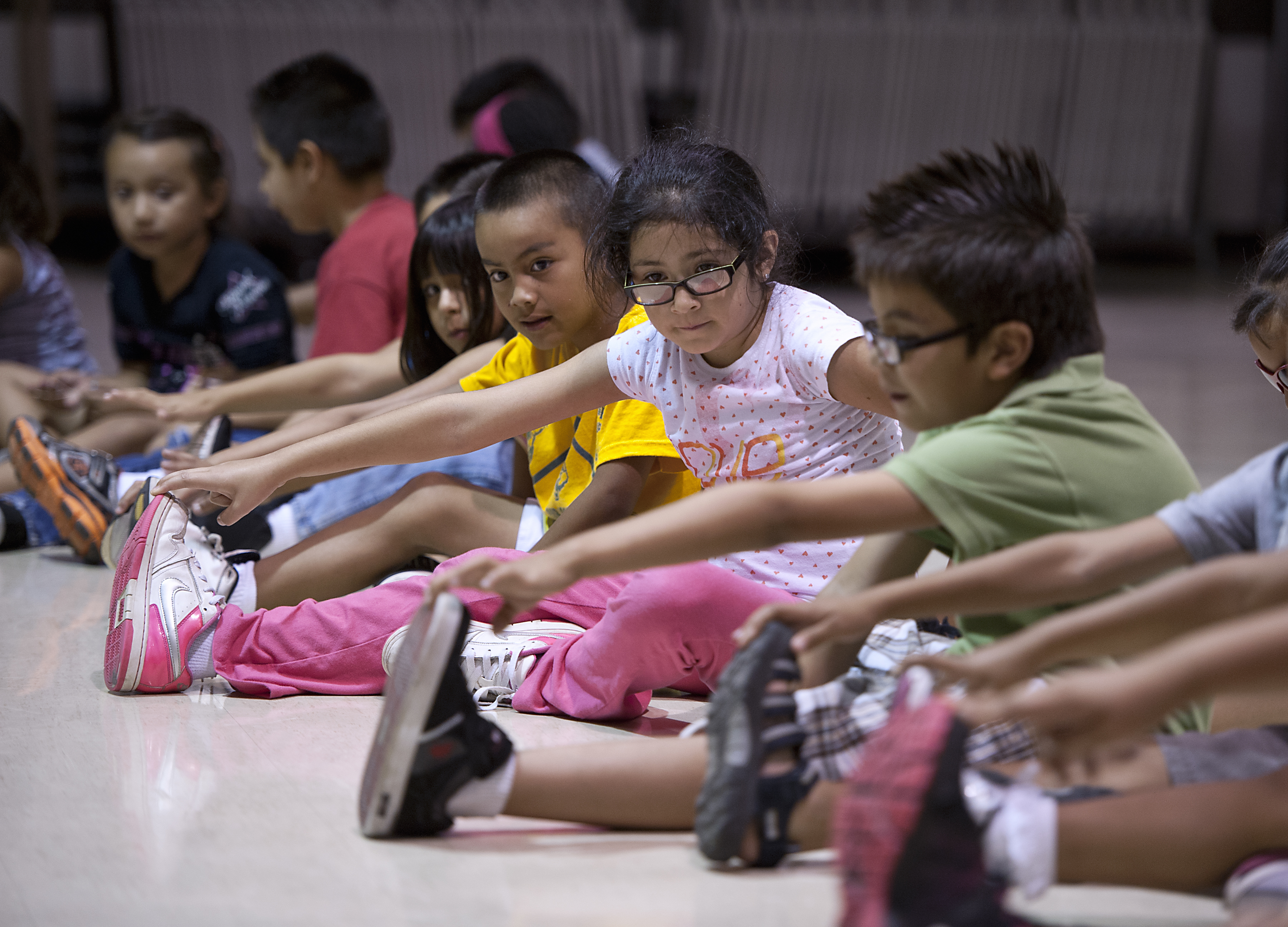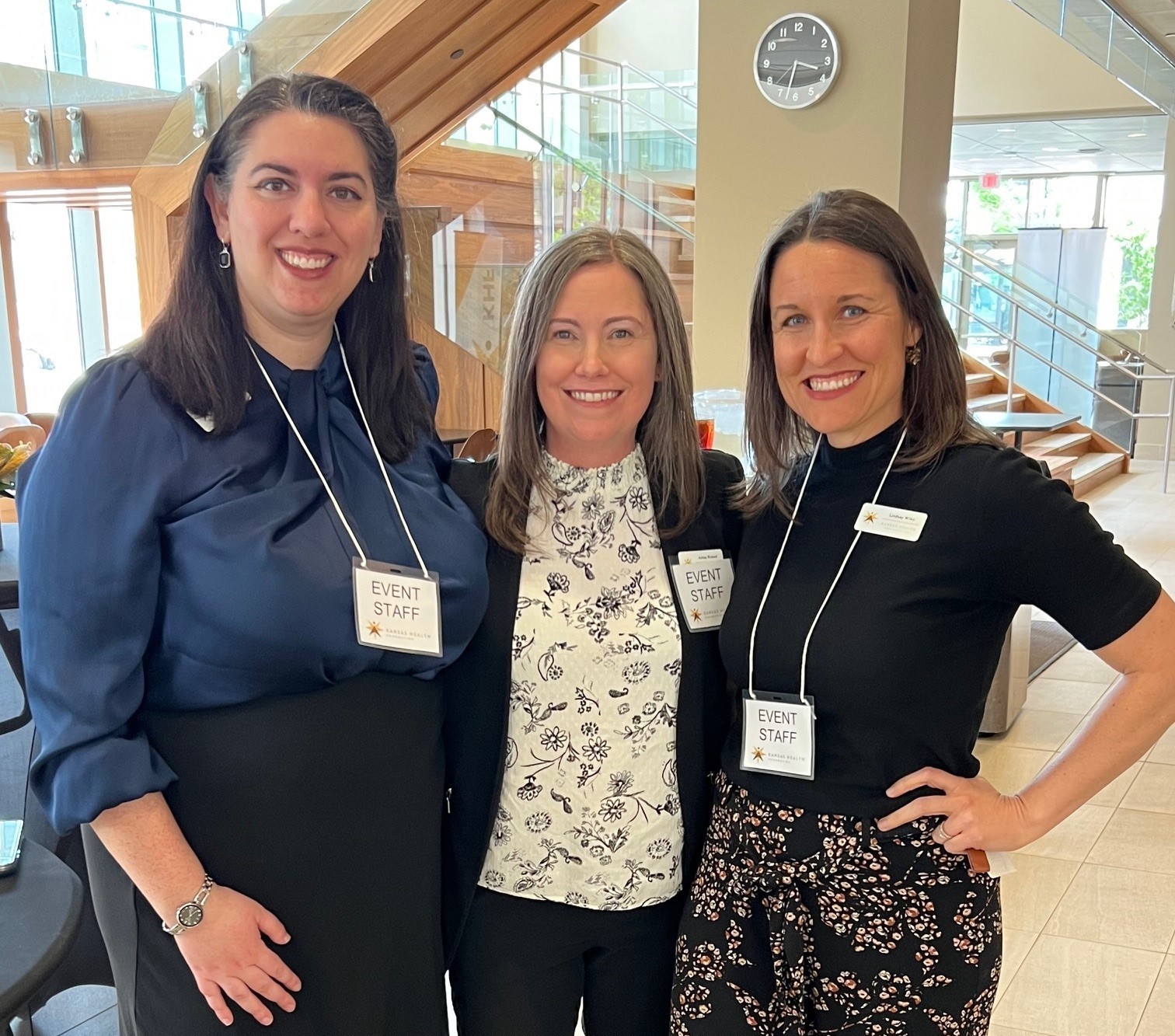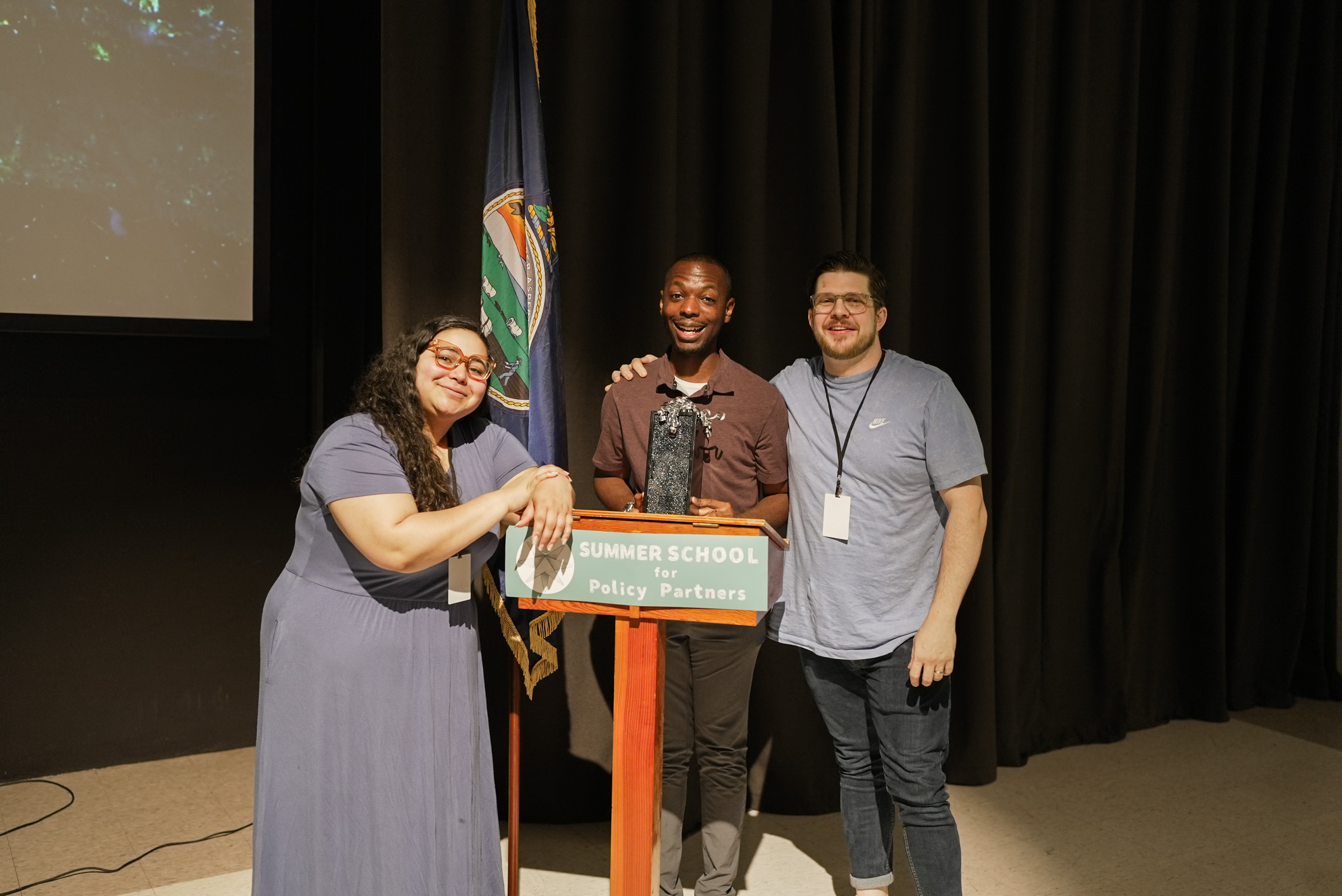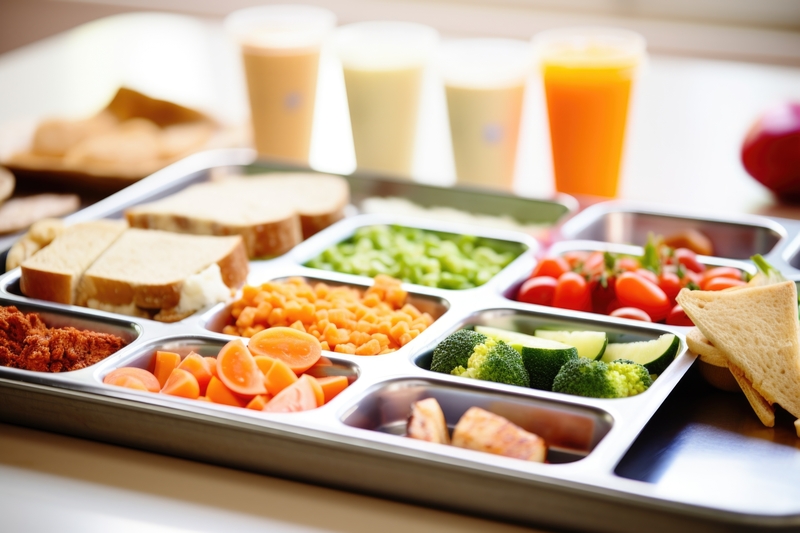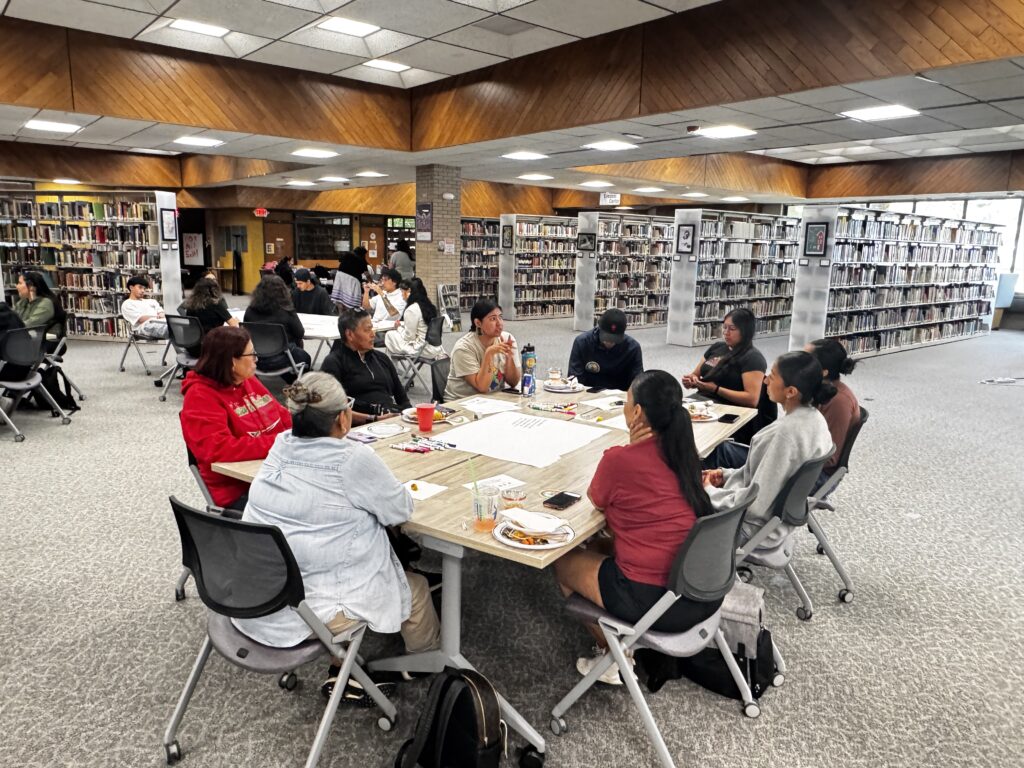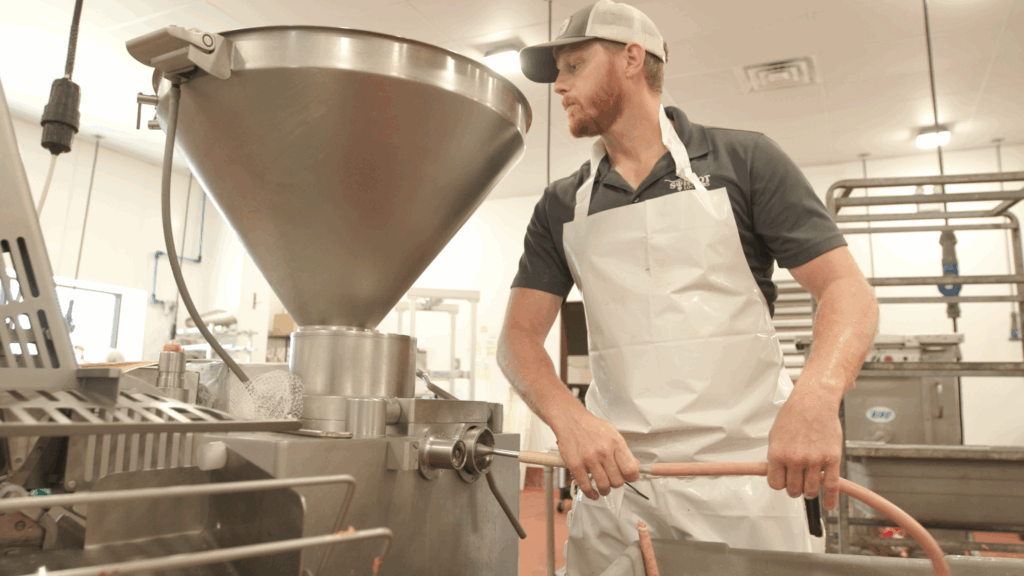This story is connected to a four-part series highlighting the work of the organizations and communities who received Hunger Free Transformation Grants in 2024.
LAWRENCE, Kan. – During the COVID-19 pandemic, all Kansas students received free meals at school, regardless of their ability to pay.
That all came to an end in August of 2022, when the federal universal free meal program stopped.
That’s when Haley Kottler, Thriving campaign director at Kansas Appleseed, began receiving a dozen daily emails from caretakers asking where their children’s free meals had gone, sharing just how impactful the meals were for their families.
“They said that they were a ‘game changer, a life changer,’” Kottler said. “They always felt the need to share how hard their family worked – and they still weren’t able to make ends meet – and how these lunches really helped them for football practice or piano practice, or whatever they were doing after school.
That’s something that’s stuck with me for the last three years. Because I don’t believe that families need to have a qualifier to be deserving of the programs that we work on. But since then, we really thought, ‘how do we make a bigger splash on getting more kids fed in school?’”
In Kansas, Kansas Appleseed indicates that nearly 130,000 children, or 1 in 5, do not know where their next meal is coming from.
When Kansas Appleseed staff reviewed state data, they found Kansas ranked near the bottom nationally in several school meal participation outcomes.
At that moment, Kottler said it was a clear call to action: they needed to engage with communities and school districts to create lasting change for Kansas kids.
Accessing Nutritious School Meals
The Kansas Health Foundation (KHF) recently awarded Kansas Appleseed a $350,000 Hunger Free Kansas Transformation Grant to ensure all Kansas children, both in rural and urban areas, have access to nutritious school meals.
The initiative is working to increase school district participation in the Community Eligibility Provision (CEP), tailor food access solutions to individual district needs, and raise awareness among parents, educators, and communities about the benefits of school nutrition programs.
With support from the grant in January, the Kansas Appleseed team brought on Jessica Kejr as its nutrition access specialist.
“Kansas Appleseed has a long history of anti-hunger work, supporting legislative action in the state and federally,” Kejr said. “But with this position, I’ve really been able to dig in more directly with schools and community members.”
With the help of Kejr, Kansas Appleseed’s strategies include engaging school leaders, families, and communities through listening sessions to identify food access needs; helping schools navigate CEP; revising punitive meal debt policies; providing training on nutrition programs; eliminating reduced-price meal copays; and connecting with legislators, state and district-based school board members, and Kansas State Department of Education (KSDE) officials to strengthen existing child nutrition policies.
“I see my role as really enhancing and leveraging all of those [school nutrition] programs, making sure we’re maximizing reimbursements – and ultimately that means more kids are getting meals – and then removing any of the barriers that might be preventing some of those meals at the school locations,” she added.
The Kansas Appleseed team is using a targeted effort over the next two years to improve school meal access by:
- Approaching school districts that are best positioned to implement CEP.
- Helping school districts eliminate punitive and outdated meal debt policies, such as those providing alternative meals, restricting student activities, or involving child welfare agencies until debts are paid.
- Increasing the number of families completing free and reduced-price meal applications.
- Helping districts adopt new policies that increase food security, including alternative breakfast models, or subsidizing reduced-price meals.
“By addressing the diverse needs of urban, suburban, and rural areas, and employing a comprehensive strategy that includes outreach, tailored support, coalition-building, policy advocacy, and continuous monitoring, we aim to ensure that no child in Kansas goes hungry,” the Kansas Appleseed team said in its KHF grant application.
Community Eligibility Provision
Although there are many strategies to help ensure no Kansas child goes hungry, Kansas Appleseed believes CEP is an effective tool to end childhood hunger and support students’ health and learning.
CEP, according to Kansas Appleseed’s toolkit, is a federal program that offers free meals to all students in any school, group of schools, or school district with at least 25 percent of students identified for free meals through direct certification – based on data from other means-based programs like Temporary Assistance for Needy Families, Supplemental Nutrition Assistance Program, and Medicaid programs – instead of using free/reduced meal applications.
“It’s a little complicated and tricky to navigate,” Kejr said. That’s why they’ve heard that having an advocate to assist schools is so helpful.
CEP increases school meal program participation; reduces administrative costs and burden tied to tracking students based on meal eligibility status; allows schools to no longer collect meal payments; requires schools to provide universal free school breakfast; and helps reduce stigma since all students are eating meals for free, regardless of their family’s income status.
In the most recent school year, Kejr reported that 177 Kansas schools supporting 59,000 students adopted CEP. However, there is still work to be done, as over 550 eligible schools remain across the state. Furthermore, Kansas ranks among the bottom five states in adopting CEP in schools and districts.
Julie Henry, who has spent almost twenty years working with federal child nutrition programs, says there are several barriers preventing CEP-eligible schools from participating.
She mentioned that these include potential financial constraints in covering costs beyond federal assistance; possible equity concerns when only some schools qualify within each district, while others do not; and the risk of losing at-risk funding if districts do not collect enough household economic surveys (in lieu of collecting free/reduced meal applications).
Henry noted that this can be manageable but may be logistically difficult for districts already facing other educational challenges.
Before joining Lawrence Public Schools as its nutrition and wellness director, Henry worked at KSDE on the Child Nutrition and Wellness team and served as the staff CEP expert. She wrote her master’s program thesis on implementing it back in 2015.
“I believe CEP is one of the best updates to the National School Lunch Program in many, many years, but am frustrated with how certain aspects of the provision limit participation in states like Kansas,” Henry said. “I also, personally, think Appleseed does great work in advocating for universal free meals, which would be greatly beneficial to all Kansans.”
Building Connections and Learning from Each Other
In May, the Kansas Appleseed team created a monthly statewide coalition called “At the Lunch Table,” which meets virtually and is made up of champions and advocates who discuss efforts to improve student food security through school nutrition programs.
The statewide school nutrition coalition is open to anyone looking to meet, learn, provide peer support, and share about these programs, which may include school district staff, food and nutrition staff, school board members, teachers, administrators, community partners, state agencies, Parent Teacher Associations, and other community stakeholders.
Although the coalition is in its very beginning stages, Kejr and Kottler hope it’ll lead to an operational cohort of schools. Perhaps it’ll be a group of five to 10 schools wanting to revamp their district’s fee collection policy, or implement CEP, while utilizing peer-to-peer support from similar school districts and learning best practices on how to make it happen.
Kansas Appleseed also builds connections with school nutrition staff through this statewide coalition and by serving on KSDE’s advisory council on child nutrition programs.
“It’s a really great way for them [Kansas Appleseed] to get feedback from our program operators as well as having them provide program operators with resources,” said Kelly Chanay, KSDE child nutrition and wellness director.
Chanay has collaborated with Kansas Appleseed for the past decade and considers the team excellent partners with KSDE, which trains, administers, and oversees the state’s child nutrition programs.
“The work they’re doing is integral with regards to capacity building at the local level,” she said. “They have an ability to get into the communities and really just advocate and leverage the work that our program operators can do. When we are talking about food security and resources available to children in the community, they [Kansas Appleseed] have the skills and the resources to be able to do that.”
Looking Ahead
Kejr said every step in this grant initiative – whether increasing CEP participation, eliminating reduced price meal copays, or reforming meal debt policies – is part of a broader push toward going back to universal free meals.
“We’re not there yet, but every step we’re taking is getting us one step closer to more meals in each school and more meals across the state through those programs,” she added.
To learn more about Kansas Appleseed and its grant-related work, please visit their website.
###



